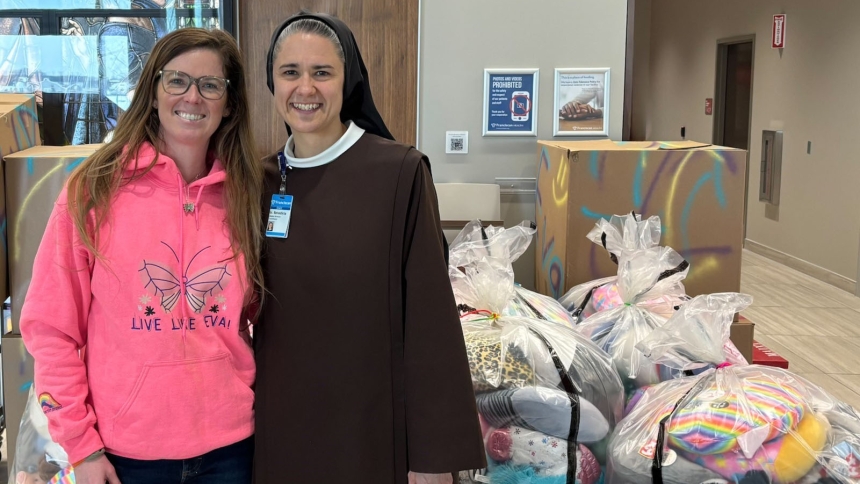
As published in the Northwest Indiana Catholic on May 27, 2017
Two weeks ago, Pope Francis visited Fatima, Portugal, honoring the 100th anniversary of Mary’s apparitions there, while canonizing Jacinta and Francisco, two of the shepherd children who received the heavenly messages.
In 1917, World War I was raging, killing hundreds of thousands of young soldiers, while that October, the Bolshevik Revolution marked the rise of Marxist communism. As the world seemed to teeter on a dangerous precipice, the Blessed Mother came to speak of peace, call people to conversion and warn of the terrible consequences of sin and hatred.
Mary assured the children at Fatima that the current war would end, but predicted a second, more terrible conflagration if people did not turn their hearts to the Lord and seek peace. She spoke of the errors and violence that communism would inflict on humanity and the terrible persecutions which the Church would suffer.
Lifting up the sacraments and prayer, especially the Rosary, as the means for people to live in harmony and holiness, both with God and each other, the Virgin of Fatima called humanity to embrace the Gospel of Christ with renewed fervor and conviction.
One hundred years later, the world seems no closer to lasting peace, a just social order or a spiritual rebirth. Culture, communication, morality and values have profoundly changed, in some ways for the better, but in many ways not. Terrorism, the arms race, tribalism, economic imbalance, political paralysis and social disengagement plague our common ability to work for the common good and achieve true peace.
Fatima reminds us that true lasting peace and justice are not simply human constructs - God, religion and spirituality will always serve as the ultimate safeguard of human dignity and well-being. Without a moral order rooted in the transcendent and the natural law, the rule of the jungle will prevail - the strongest will always crush the weakest.
In encouraging people to pray the Rosary, Mary is not simply offering us a devotional exercise in a piety which changes nothing. When we ponder the mysteries of Christ’s life, death and resurrection, we enter into the very heart of the Gospel and the center of our salvation. In the Rosary, we ask Mary to unlock her heart where Scripture tells us she stored precious memories of her Son, and to share this abundant divine life with us.
The more we are rooted in the life and story of Christ, the more we imitate his love, courage, mercy, reconciliation and sacrifice. Faithfully praying the Rosary will change us into ambassadors of the Gospel who can truly transform the world with the power of the Holy Spirit.
In his remarks at Fatima, Pope Francis invites us to reflect on “which Mary” we choose to venerate, “the Virgin Mary from the Gospel” or “one who restrains the arm of a vengeful God?” Is the Mary we honor “a woman blessed because she believed always and everywhere in God’s words or a plaster statue from whom we beg favors at little cost?”
These questions from the Holy Father remind us that true Marian devotion will always authenticate both our relationship with Jesus and our attempts to live the Gospel in all of its personal and social dimensions.
In other words, if our prayer, sacramental and devotional life does not lead us to conversion, moral change and a heroic effort to transform the world more faithfully to the values of the Kingdom of God, it remains simply a private relationship of dubious merit which may make us feel better about our holiness and worthiness before God, but can never be fully authentic.
Catholicism has always been a both/and proposition. We embrace both Scripture and tradition, the Word and sacrament, the soul and the body, a personal relationship with Christ and a public life of compassionate service, mercy and justice, abundant charity and social transformation, Jesus and the Church.
By holding these beliefs and values together, sometimes not without tension, our Catholic faith mediates the totality of God’s revelation to us. Where others may see polarities or opposites, we choose to integrate and harmonize because we do not want to leave one iota of God’s beauty, truth and goodness behind.
For us then, no dichotomy exists between a tender and prayerful relationship with Mary and a social conscience that calls us to change the world. A quick reading of Mary’s Magnificat in Luke’s Gospel confirms this cohesive unity. The social teaching of the Church cuts across all political and ideological divides, always lifting up the glory and truth of the human person, created by God and redeemed by Christ.
The Virgin of Fatima calls us to deep prayer and courageous action, to allow the Lord to transform us within, so that we can sanctify the world without.
As we approach our diocesan synod, we ask Mary to accompany us to the Upper Room and to pray for us, so that the Holy Spirit will fall upon us, and, as the prophet Joel proclaimed long ago, “I will pour out my spirit upon all mankind. Your sons and daughter s shall prophecy, your old men shall dream dreams, your young men shall see visions.” (Joel 3: 1)
+ Bishop Donald J. Hying



